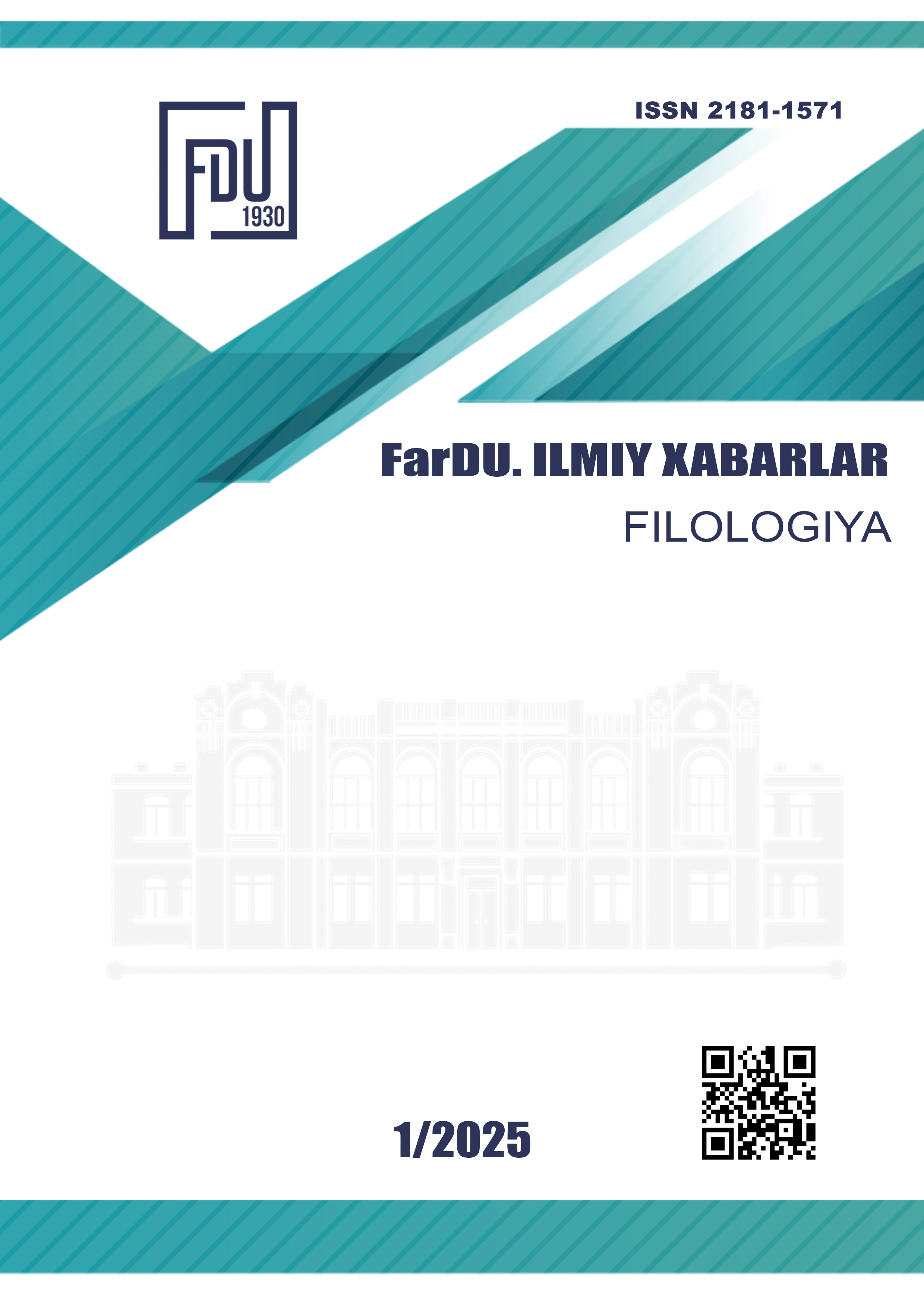NEUROPYCHOLINGUISTIC APPROACH TO THE ANALYSIS OF TYPES OF APHASIA
Keywords:
Aphasia, Broca, Wernicke, linguistic approach, speech, LuriaAbstract
This article explores the phenomenon of aphasia from both linguistic and neurological perspectives. Aphasia is a complex psychoneurological condition characterized by speech impairment resulting from damage to specific areas of the brain. The main aim of the research is to identify and analyze the causes of aphasia, its main types—particularly Broca's and Wernicke's aphasia—as well as various forms of speech disorders based on the classification proposed by A.R. Luria. The article provides a detailed overview of the contributing factors (such as stroke, brain injuries, etc.), symptoms of aphasia, the specific features of each type, and the possibilities for treatment and rehabilitation. It also examines linguistic approaches to working with patients affected by aphasia, along with theoretical and practical methods of speech recovery. The research findings indicate that each type of aphasia has distinct characteristics and requires an individualized approach. In conclusion, the article presents an in-depth analysis of the phenomenon of aphasia and justifies the relevance of scientific studies conducted at the intersection of linguistics and neurology
References
Alfredo Ardila. A proposed reinterpretation and reclassification of aphasic syndromes. Florida International University, Miami, FL, USA, 2010.
Alexander R. Luria. Neuropsychological studies in aphasia. 1977.
David Frank Benson & Alfredo Ardila – Aphasia: A Clinical Perspective. Oxford University Press, 1996.
Frederick L. Darley, Arnold E. Aronson & Joe R. Brown – Motor Speech Disorders. W.B. Saunders Company, 1975.
Howard S. Kirshner. Aphasia Handbook: A Guide for Stroke and Brain Injury Survivors and Their Families. Oxford University Press, 2020.
Kurt Goldstein. Language and Language Disturbances. 1948.
Nancy Helm-Estabrooks & Martin L. Albert – Manual of Aphasia,2014.
Z. Ibodullayev. Tibbiyot psixologiyasi. - Toshkent, 2012.
Методы Нейропсихологической Диагностики. Л. И. Вассерман 102-sahifa
Downloads
Published
Issue
Section
License
Copyright (c) 2025 Scientific journal of the Fergana State University

This work is licensed under a Creative Commons Attribution-NonCommercial-NoDerivatives 4.0 International License.
How to Cite
Most read articles by the same author(s)
- , , DEVELOPMENT OF PEDAGOGICAL COMPETENCE OF FUTURE MUSIC TEACHERS ON THE BASIS OF AN INTEGRATIVE APPROACH , Scientific journal of the Fergana State University: No. 5 (2023): Scientific journal of the Fergana State University (Social humanities sciences)
- , , STAGES OF ACTIVATING LEXICAL SYNONYMS IN THE SPEECH OF PRIMARY SCHOOL STUDENTS , Scientific journal of the Fergana State University: No. 3 (2022): Scientific journal of the Fergana State University
- , , , , TREATMENT OF WASTEWATER CONTAMINATED WITH OIL AND OIL PRODUCTS USING TOP WATER PLANTS , Scientific journal of the Fergana State University: No. 2 (2023): Scientific journal of the Fergana State University (Exact and natural sciences)
- , , , THE ORETICAL BASIS AND METHODS OF NEUROLINGUISTICS , Scientific journal of the Fergana State University: No. 4 (2023): FarDU ilmiy habarlari jurnali (Ijtimoiy gumanitar)
- , , , , RESEARCH ANALYSIS OF FERGANA OIL REFINING PLANT WASTEWATER TREATMENT USING AQUATIC PLANTS , Scientific journal of the Fergana State University: No. 2 (2023): Scientific journal of the Fergana State University (Exact and natural sciences)
- , , SOLUTIONS OF OVERCOMING FEAR TO SPEAK BEFORE PUBLIC , Scientific journal of the Fergana State University: No. 3 (2024): Scientific journal of the Fergana State University. Application set (Social humanities sciences)
- , , ARTISTIC EXPRESSION OF LANDSCAPE IN THE STORIES OF ISAJAN SULTAN , Scientific journal of the Fergana State University: No. 3 (2024): Scientific journal of the Fergana State University. Application set (Social humanities sciences)
- , COMPARATIVE STUDY OF STRUCTURAL-SEMANTIC ASPECTS OF HYPOTAXEMAS WITH CONDITIONAL COMPONENTS IN ENGLISH AND UZBEKI , Scientific journal of the Fergana State University: No. 6- TOM (2023): SPECIAL ISSUE
- Ergasheva Durdona Safarali qizi, EXPLORING THE PEDAGOGICAL STRATEGIES FOR TEACHING PATRIOTISM AND FRIENDSHIP THROUGH UZBEK FOLK TALES , Scientific journal of the Fergana State University: No. 3 (2023): FarDU ilmiy xabarlari jurnali (Aniq va tabiiy fanlar)
- , THE HUMAN WORLDVIEW AS A MODELING UNIVERSE , Scientific journal of the Fergana State University: No. 3 (2024): Scientific journal of the Fergana State University. Application set (Social humanities sciences)

